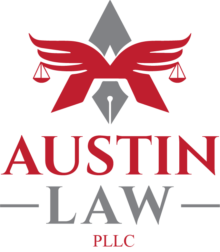
At Austin Law, we recognize that being on probation can feel overwhelming, especially with the potential risks of violations that could lead to revocation. In this post, we’ll break down what probation means, the common violations that can occur, and how our legal team can support you if you face allegations of a probation violation.
What Does a Probation Officer Do?
Probation officers play a critical role in overseeing individuals on probation, ensuring compliance with court-imposed conditions. In Texas, these officers typically meet with probationers once a month. During these meetings, they assess progress, offer support, and check adherence to the terms of probation.
Defining a Probation Violation in Texas
Probation, or community supervision in Texas, allows individuals to serve their sentences outside of jail. However, this opportunity comes with specific rules. Breaking any of these conditions can result in serious repercussions, including revocation.
Here are some of the most common violations:
- Failure to Report: Missing scheduled meetings with your probation officer.
- Financial Noncompliance: Not paying fines or restitution as ordered by the court.
- Substance Abuse: Testing positive for drugs or alcohol.
- New Offenses: Committing a new crime while on probation.
For example, take Bill, who was convicted of a DWI and placed on probation with the requirement to avoid alcohol. If he tests positive for alcohol during a random check, that would be a clear violation and could result in severe consequences.
Consequences of Violating Probation
If a violation occurs, like in Bill’s case, he could face a range of outcomes, including:
- Extended Probation: The court may extend his probation period.
- Increased Monitoring: Stricter reporting requirements or additional counseling sessions.
- Jail Time: In severe situations, he may have to serve time equivalent to his original sentence.
To address the situation, Bill would need to go to court, where he and his lawyer can present arguments and evidence to explain the violation and request leniency.
The Importance of Financial Responsibilities
Fines and restitution are essential components of probation. Failing to pay these can signal a disregard for court orders, potentially leading to revocation. It’s crucial to stay on top of these obligations to maintain your probation status.
Travel Limitations
While on probation, you’re generally expected to remain within your designated area. Traveling outside this zone without prior approval from your probation officer is a violation that could lead to serious consequences.
Associating with Criminals
Another violation that can jeopardize your probation is associating with known criminals. If you’re on probation, you’re typically prohibited from being around individuals with criminal backgrounds, and violating this condition can have repercussions.
Employment and Education
Maintaining a job or attending school is often required while on probation. Failing to do either without a valid reason can be viewed as a violation. For instance, if Bill, who is on probation for a drug offense, loses his job and does nothing to find new work, his probation could be at risk. Similarly, skipping school regularly could jeopardize a student’s probation status.
Driving Violations
Driving without a valid license while on probation can lead to revocation. If your license is suspended, operating a vehicle can violate your probation terms.
New Criminal Activity
Being arrested for a new crime while on probation is a serious matter. In Texas, such an arrest can lead to immediate probation revocation, regardless of the outcome of the new charges.
How Can a Lawyer Assist You?
If you’re facing allegations of a probation violation, having a skilled attorney can make a significant difference. Here’s how we can help:
- Court Representation: We can advocate for you in court, working to minimize the impact of the alleged violation.
- Legal Guidance: Our team will clarify the implications of your situation and advise on the best steps to take.
- Evidence Collection: We’ll gather evidence to support your case, showcasing your compliance or providing context for the violation.
- Negotiation: We can negotiate with probation officers or prosecutors to explore alternatives to revocation, such as modifying probation terms.
- Rights Protection: Our attorneys ensure that your rights are upheld throughout the process, preventing any unfair treatment that could affect your case.
Conclusion
Understanding the ins and outs of probation violations is crucial for anyone on probation. If you or someone you know is facing a potential violation, don’t hesitate to contact Austin Law. Our experienced team is ready to help you navigate this challenging landscape and protect your rights.
